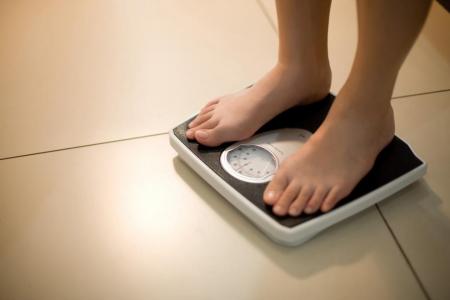Overate during CNY? Here's how to manage your weight using TCM
Traditional Chinese medicine sees obesity as symptomatic of bodily dysfunction
Chinese New Year is the perfect occasion to feast - only to realise you have overeaten and piled on extra kilos.
Rather than viewing obesity as a problem on its own, traditional Chinese medicine (TCM) sees it as a symptom of an underlying dysfunction.
The build-up of fat is linked to overall bodily disharmony arising from disruptions in the natural flows of the body's energies, which is known as qi - the vital energy or life force fundamental to our body's processes and well-being.
It facilitates the proper functioning of all organs, promotes the healthy formation and circulation of blood and supports the metabolism of body fluids.
When qi is disrupted, the functions of one or more organs will be affected, leading to the accumulation and stagnation of dampness and phlegm.
In TCM, fat is viewed as the result of accumulated phlegm and internal dampness.
One common body constitution or underlying problem leading to weight gain is qi deficiency, especially in the spleen and stomach systems.
Deficiency in qi will slow the metabolism of fat and water, leading to water retention and a flabby body.
Due to a lowered metabolism rate, people with qi deficiency find it difficult to lose weight even though they are dieting and exercising.
They also tend to suffer from other problems, such as fatigue and digestive issues.
TCM physicians will assess them and make a diagnosis on their bodies' constitution.
A customised treatment plan will then be recommended to balance the body and rectify any disharmony in the organ systems. Treatment includes acupuncture, cupping, herbal prescriptions and lifestyle recommendations.
The root causes of these imbalances have to be addressed to solve weight problems.
Physician Lin Jia Yi of Eu Yan Sang TCM Clinic at HarbourFront and Eu Yan Sang TCM Wellness Clinic at Dhoby Ghaut recommends these weight loss tips:
Follow a balanced diet for healthy spleen functions
In TCM, the spleen and stomach are the primary organs responsible for digestion. Eating too much may affect the digestive organs and disrupt their normal functions.
When these organs fail to handle the extra load, problems such as poor digestion, slow metabolism, food stagnation, internal phlegm and dampness may follow.
Improve digestion for healthy weight
To stimulate the secretion of digestive fluids and break down fatty substances, consume unripe orange, hawthorn berry, rangoon creeper fruit, radish seeds and tangerine peel.
Promote bowel movement to eliminate metabolic waste
Our bodies have to be able to excrete waste regularly to prevent weight problems.
Black sesame, radish seeds, peach seeds, biota seeds and rhubarb are commonly used to ease constipation.
Get rid of fluid retention
A bloated appearance, puffiness and weight gain may be caused by fluid retention in the body.
One way to get rid of excessive water or dampness is to take herbs that induce urination, such as coix barley, red bean, inula flower, plantain seeds, rice bean, senna leaf and white atractylodes.
Warming up the body through exercise or food can also help to resolve water retention and dampness.
Herbs with warm or hot energy and a pungent taste can warm the body, increase perspiration and induce urination.
Cinnamon bark, ginger, areca peel and unripe orange are commonly used for these purposes.
Acupuncture
Acupuncture is effective in managing imbalances that cause weight problems.
The treatment, which employs the use of needles applied to selected acupuncture points, can promote digestion, raise the metabolic rate, control the appetite and invigorate the spleen.
Ear acupressure
Located on and in the ear are five acupoints - hunger, endocrine, spleen, stomach and the master-point (the divine gate) - that have direct links to all the major systems associated with obesity-related body dispositions.
Ear seeds can be pasted on the ear by TCM physicians to stimulate the acupoints.
Get The New Paper on your phone with the free TNP app. Download from the Apple App Store or Google Play Store now



